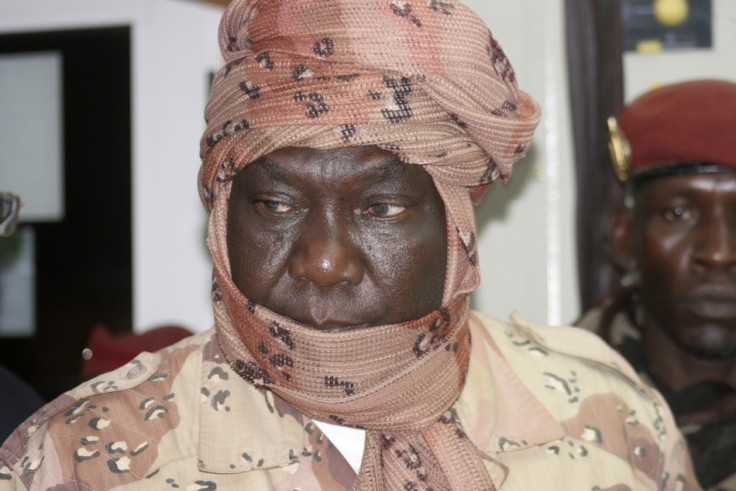Michel Djotodia: The former CAR President and leader of Seleka rebel militia
Djotodia is accused of recruiting child soldiers and atrocities against civilians.

The Central African Republic (CAR) does not only have a long history of military coups, instability and violence, but is today carrying an entrenched culture of impunity.
This impunity, which includes amnesties for people accused of having committed serious human rights violations, not only denies justice to thousands of victims but also perpetuates the cycle of violence. Among the high-profile suspects who remain at large, and apparently free of investigation, is Michel Djotodia, who seized power in 2013 before he was resigned a little less than a year later.
From December 2012, and after decades of violence punctuated by a fragile peace agreement, Djotodia was nominated as First Deputy Prime Minister for National Defense in February 2013. But when the peace deal broke down, Djotodia led an armed rebel coalition made up mostly of Muslims known as Seleka from CAR and neighbouring countries, against President François Bozizé and his government.
On 24 March 2013, Djotodia took power, after a period during which, according the United Nations, his Seleka fighters "committed serious human rights violations and crimes under international law". These include the recruitment of child soldiers and atrocities against civilians, including rape, kidnappings, and attacks on schools and hospitals.
The first Muslim to hold office in CAR pledged to lead a transition to new elections, but the coup sent the country on a downward spiral. In the months that followed, Bozizé's mostly Christian "self-defence" militia groups known as the anti-Balaka engaged in tit-for-tat violence against Seleka fighters, and carried out large-scale reprisal attacks against Muslim civilians across CAR.
Under Djotodia, the cycle of revenge killing continues
Fighters from the Seleka rebel forces were supposedly disbanded in September 2013 when Djotodia, who they had helped bring to power six months earlier, banned the group. Many of the ex-Seleka henchmen, however, continued to operate, but none of their high-profile leaders, including Haroun Gaye and Abdoulaye Hissene, have ever been prosecuted.
The officially-dissolved Seleka, meanwhile, were still criticised for continuing to perpetrate violence against civilians, and crimes under international law, including war crimes and crimes. The sectarian violence between ex-Seleka and Anti-balaka forces – Muslims and non-Muslims – reached alarming levels in December 2013, when the fighting killed nearly 1,000 civilians in the capital Bangui, prompting an international outcry and Djotodia's resignation on 10 January 2014.
In July that year, ex-Seleka fighters announced that Djotodia had been restored as their leader, as peace talks were due to take place in neighbouring Republic of Congo aimed at ending the violence that engulfed the country.
On the ex-Seleka side, the leaders of the four main factions currently active in CAR all continue to operate freely, according to Amnesty, and the cycles of revenge killings continued throughout 2015. In 2016, the security situation has sharply deteriorated, with numerous attacks killing dozens of civilians in Bangui and across CAR, including internally displaced persons (IDPs).
In the most tragic incident, on 12 October 2016, a group of ex-Seleka fighters, including members of both the Mouvement patriotique pour la Centrafrique (MPC) and Front populaire pour la renaissance de la Centrafrique (FPRC) factions, as well as a group of individuals suspected to be affiliated with them, attacked a camp for IDPs in Kaga-bandoro. Following the ex-Seleka attack, large parts of the camp were set on fire, at least 37 civilians were killed, and a further 60 injured, as reported by Human Rights Watch.
For his role as leader of the Seleka rebellion, Djotodia, now 68, is one of the CAR nationals under US sanction, since May 2014. The former head of state sought exiled in Benin, where he now lives with his family in the capital, Cotonou.
© Copyright IBTimes 2025. All rights reserved.






















